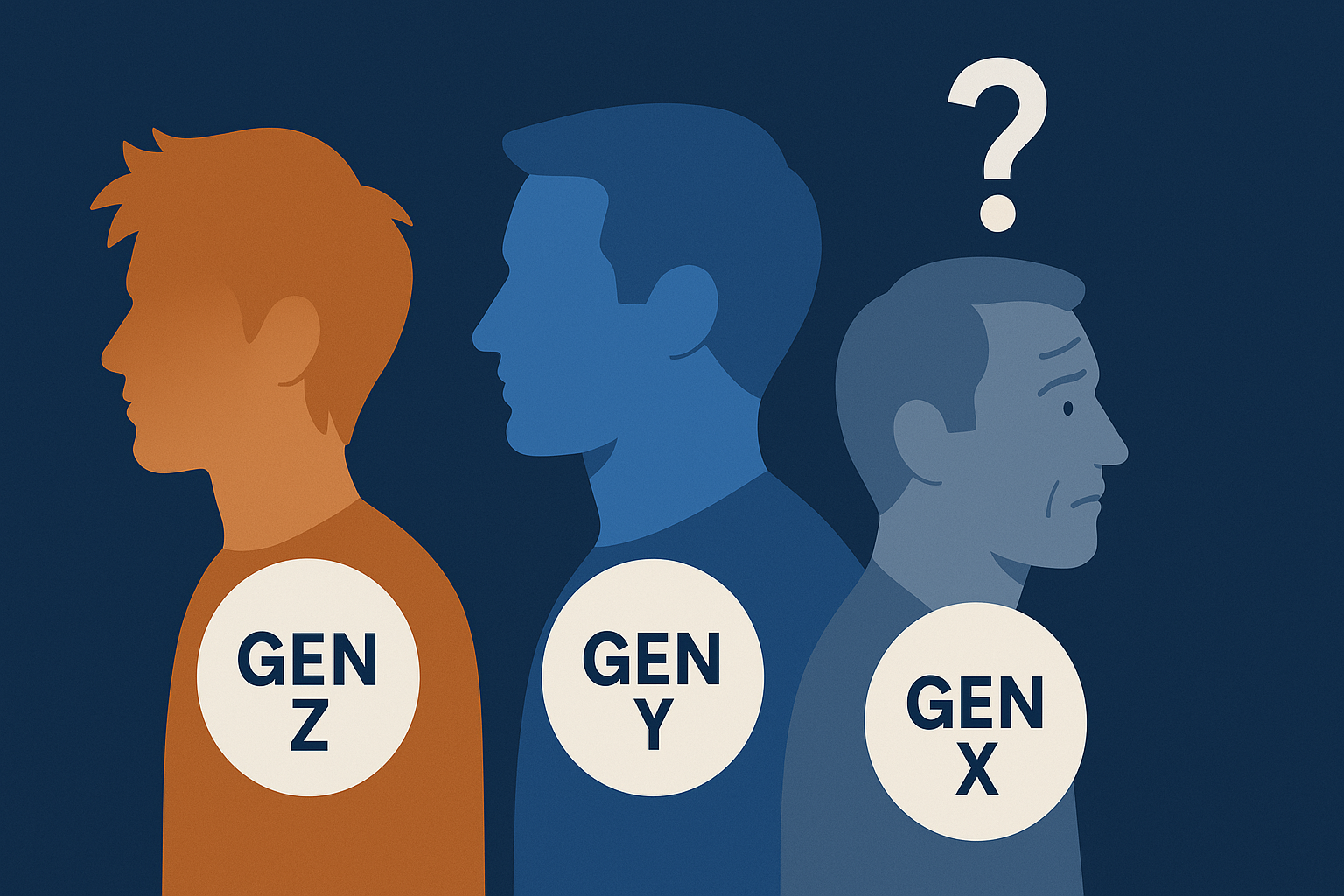Introduction – Generational Labels Are Getting Out of Hand
Enough is enough. The obsession with dividing society into neatly labeled generations—Gen Z, Millennials (Gen Y), Gen X, Boomers—has gone too far. Marketers, social scientists, and media outlets can’t seem to resist the urge to pigeonhole entire age groups, as if everyone born within a two-decade span thinks, acts, and lives the same way. It’s lazy, reductive, and ultimately misleading.
While there’s no denying that social trends and cultural shifts influence different age groups, the relentless focus on generational labels has reached a point of absurdity. Are we really expected to believe that a 40-year-old Gen X professional and a 25-year-old Millennial have nothing in common just because they belong to different cohorts? It’s time to question the validity and usefulness of these labels rather than blindly accepting them as truth.
What’s even more concerning is how these generational stereotypes fuel division and misunderstanding. Millennials are labeled as entitled and lazy, Gen Z as screen-addicted and sensitive, and Gen X as apathetic and disillusioned. These broad generalizations do nothing but perpetuate conflict and bias between groups that might have far more in common than we think.
So why do we keep clinging to these outdated concepts? Is it because they offer a convenient way to make sense of social changes, or are they just another way to oversimplify human diversity? This article will challenge the notion that generational labels have real value, examine their impact on society and marketing, and make a bold case for moving beyond the madness of generational division.
The Obsession with Generational Labels: Why Are We So Fixated?
What is it about generational labels that keeps us so enthralled? Why are we so eager to divide ourselves into groups based on the decade we were born? From Boomers to Gen Z, society seems hooked on categorizing people as if age alone determines values, beliefs, and behavior.
One reason is that generational labeling provides a convenient shortcut for understanding complex social dynamics. Social scientists, marketers, and the media latch onto these concepts because they make it easier to explain societal changes without digging deeper into individual experiences. In reality, though, these labels are often nothing more than gross oversimplifications.
The media, in particular, loves a good generational conflict. Headlines pitting Millennials against Boomers or Gen Z against Gen X generate clicks and fuel debates, but they rarely add any real insight into how people actually think and behave. It’s storytelling at its most manipulative, crafting narratives that pit age groups against each other rather than seeking common ground.
Marketing departments are just as guilty. By breaking down the population into generational cohorts, they craft messages that supposedly resonate with specific age groups. But is it really that simple? Does every Gen Z consumer really crave edgy, rebellious branding, while every Boomer wants stability and tradition? The truth is far more nuanced, yet we persist in these stereotypes because they’re easy to digest and reproduce.
The fixation on generational labels is nothing but a lazy way to understand society. It’s time to start questioning whether these distinctions hold any real value, or if they’re just a convenient way to explain away social changes without putting in the effort to understand people as individuals.
Stereotypes and Generalizations: Are These Labels Helpful or Harmful?
Let’s face it: generational labels do more harm than good. They encourage lazy thinking and fuel harmful stereotypes that divide rather than unite. When we label Millennials as “entitled and lazy”, Gen Z as “screen-obsessed and fragile”, and Boomers as “out of touch and resistant to change”, we reduce entire age groups to one-dimensional caricatures. It’s insulting, it’s misleading, and it’s counterproductive.
These stereotypes don’t just exist in casual conversations—they infiltrate workplaces, marketing strategies, and even public policy. Employers, for example, might assume that younger employees lack commitment or that older workers are technologically inept. This kind of broad-brush thinking leads to biased hiring practices and fosters resentment among team members.
The reality is that individual differences far outweigh generational commonalities. Within each generation, you’ll find go-getters and slackers, innovators and traditionalists, tech-savvy users and those who struggle with digital tools. The problem is not just the labels themselves, but how rigidly they are applied to real human beings with diverse experiences and personalities.
When we cling to these stereotypes, we rob people of their individuality and miss opportunities to connect on a more personal level. It’s time to move beyond simplistic labels and recognize that every individual has a unique story—regardless of the year they were born.
Marketing’s Love Affair with Generations: Is It Just a Gimmick?
Marketers are some of the biggest culprits when it comes to pushing generational labels. They love to slice and dice the population into neatly defined age groups, convinced that each generation shares identical desires and buying behaviors. But here’s the harsh reality: This approach is outdated and fundamentally flawed.
Successful brands today know better. Instead of clinging to stereotypical generational marketing, they focus on shared values, community, and personalized experiences. Companies like Nike and Patagonia thrive because they understand that customers of all ages respond to authenticity and purpose, not just trendy messaging.
The obsession with generational marketing doesn’t just fail to connect—it actively alienates potential customers who feel misrepresented and misunderstood. It’s time to ditch the one-size-fits-all approach and start acknowledging that people are far more than just the year they were born.
The Real Issue: Ignoring Individuality and Human Complexity
The biggest problem with generational labels is that they strip away individuality and reduce people to stereotypes. It’s as if being born within a specific range of years somehow determines your values, preferences, and behaviors. But real life doesn’t work that way. People are shaped by family influences, education, culture, personal experiences, and countless other factors that go far beyond the year on their birth certificate.
Ironically, the more we focus on generational differences, the more we lose sight of the commonalities that actually matter. In reality, people from all age groups share aspirations, struggles, and values. They care about financial security, meaningful connections, and making a positive impact—regardless of whether they’re Gen Z, Gen Y, or Gen X.
Conclusion – Let’s Stop the Generational Madness
It’s time to face the truth: Generational labels are nothing more than convenient stereotypes that do more harm than good. They fuel misunderstanding, perpetuate division, and oversimplify human complexity. By clinging to these outdated concepts, we risk losing sight of individual identity and ignoring the diverse experiences that make each person unique.
The bottom line is simple: Let’s stop the madness. Instead of obsessing over when people were born, let’s start seeing them for who they are—unique, multi-dimensional individuals who deserve to be understood on their own terms.
References:
- Pew Research on Generations
- Marketing to Generations: A Guide
- Understanding Generational Stereotypes
- H-in-Q Analytics



